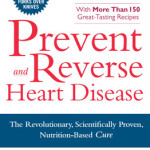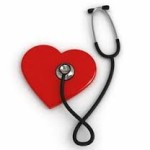 Heart disease is a growing problem in a world where stress is common and people don’t get enough rest, good nutrition and exercise. Fortunately there are heart prevention screening tests that will indicate when there is a higher risk of developing heart disease and how to avoid that risk.
Heart disease is a growing problem in a world where stress is common and people don’t get enough rest, good nutrition and exercise. Fortunately there are heart prevention screening tests that will indicate when there is a higher risk of developing heart disease and how to avoid that risk.
There are several aspects to prevention screening tests. Each criteria tests another aspect of your health that you may have the ability to change and therefore impact your own health and wellness.
The first screening test your doctor may perform is a cholesterol test. Testing your cholesterol involves a small blood sample that can be drawn in the doctor’s office or laboratory. To get the most accurate results the patient shouldn’t have anything to eat or drink for 8-12 hours before the test. This ensures that the test will not be influenced by the body’s hormonal (insulin) reaction to food or drink.
There are four cholesterol numbers that are important. The first is the Total Cholesterol, which should be below 200 mg/dL. The Low Density Lipoproteins (LDL) Cholesterol is the bad cholesterol and it should be as low as you can get it. The goals for this number vary depending upon variables that you can discuss with your doctor. The High Density Lipoproteins (HDL) Cholesterol should be 40 mg/dL or higher for men and 50 mg/dL or higher for women. The last number is the Triglycerides and that should be less than 150 mg/dL. You cholesterol levels will give you an estimation of what your risk is for developing clots from fat lodged in your arteries. Reducing the amount of saturated and trans fat that you eat will help to reduce this risk.
Resources:
Columbia Department of Surgery: Prevention
http://columbiaheart.org/prev.html
University of Maryland Medical Center: Tips for Prevention
http://www.umm.edu/features/tips_prev.htm
University of Maryland Medical Center: Maryland Heart Center
http://www.umm.edu/heart/preventive.htm
Cedars-Sinai: Give a Heart Screening to Someone You Love



Leave a Reply